Welcome to the Amira-Avizo Software Use Case Gallery
Below you will find a collection of use cases of our 3D data visualization and analysis software. These use cases include scientific publications, articles, papers, posters, presentations or even videos that show how Amira-Avizo Software is used to address various scientific and industrial research topics.
Use the Domain selector to filter by main application area, and use the Search box to enter keywords related to specific topics you are interested in.
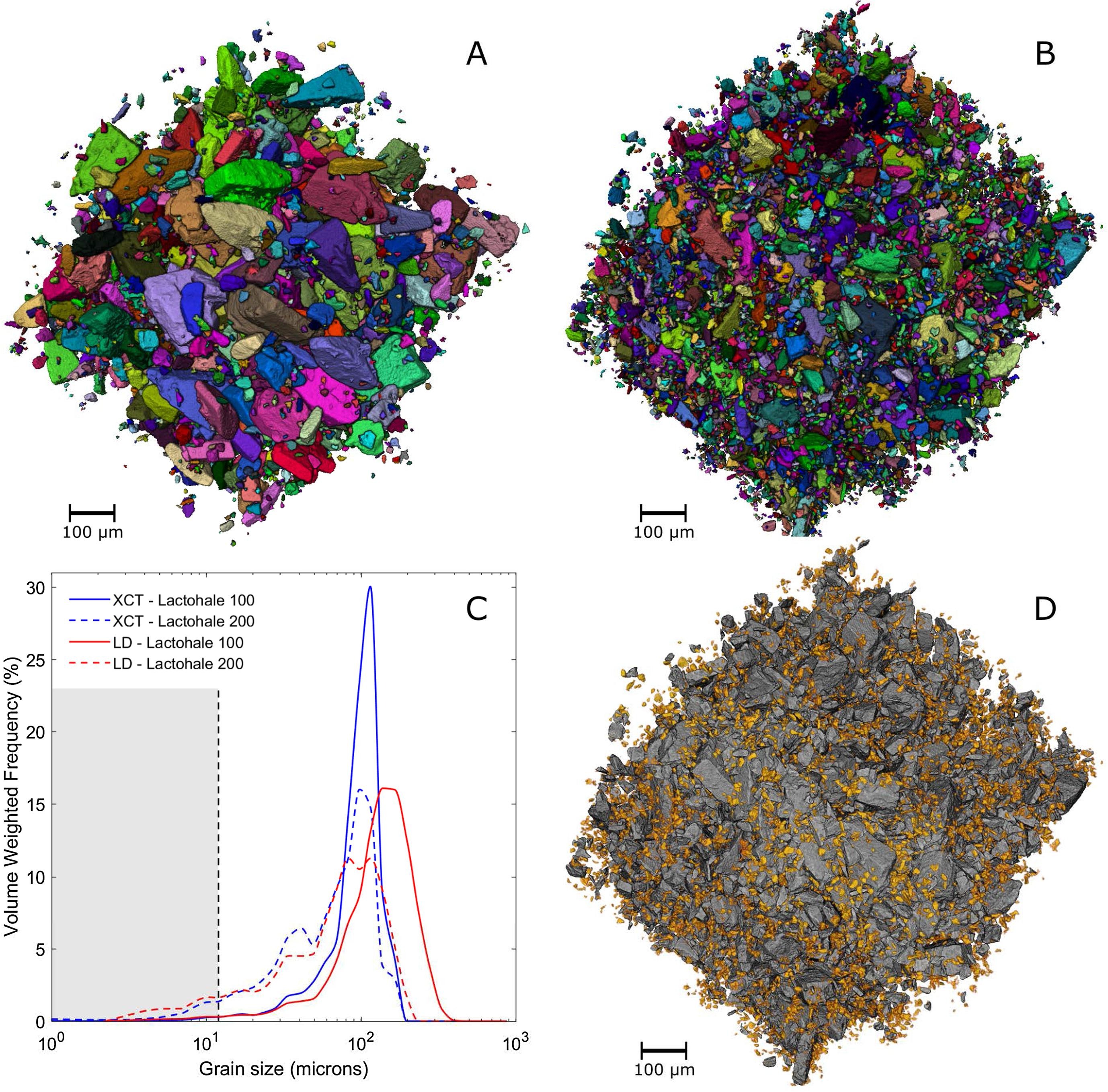
3D characterisation of dry powder inhaler formulations
Carrier-based dry powder inhaler (DPI) formulations need to be accurately characterised for their particle size distributions, surface roughnesses, fines contents and flow properties. Understanding the micro-structure of the powder formulation is crucial, yet current characterisation methods give incomplete information. Commonly used techniques like laser diffraction (LD) and optical microscopy (OM) are limited due to the assumption of sphericity and can give variable results depending on par... Read more
P. Gajjar, I.D. Styliari, T.T.H. Nguyen, J. Carr, X. Chen, J.A. Elliott, R.B. Hammond, T.L. Burnett, K. Roberts, P.J. Withers, D.Murnane
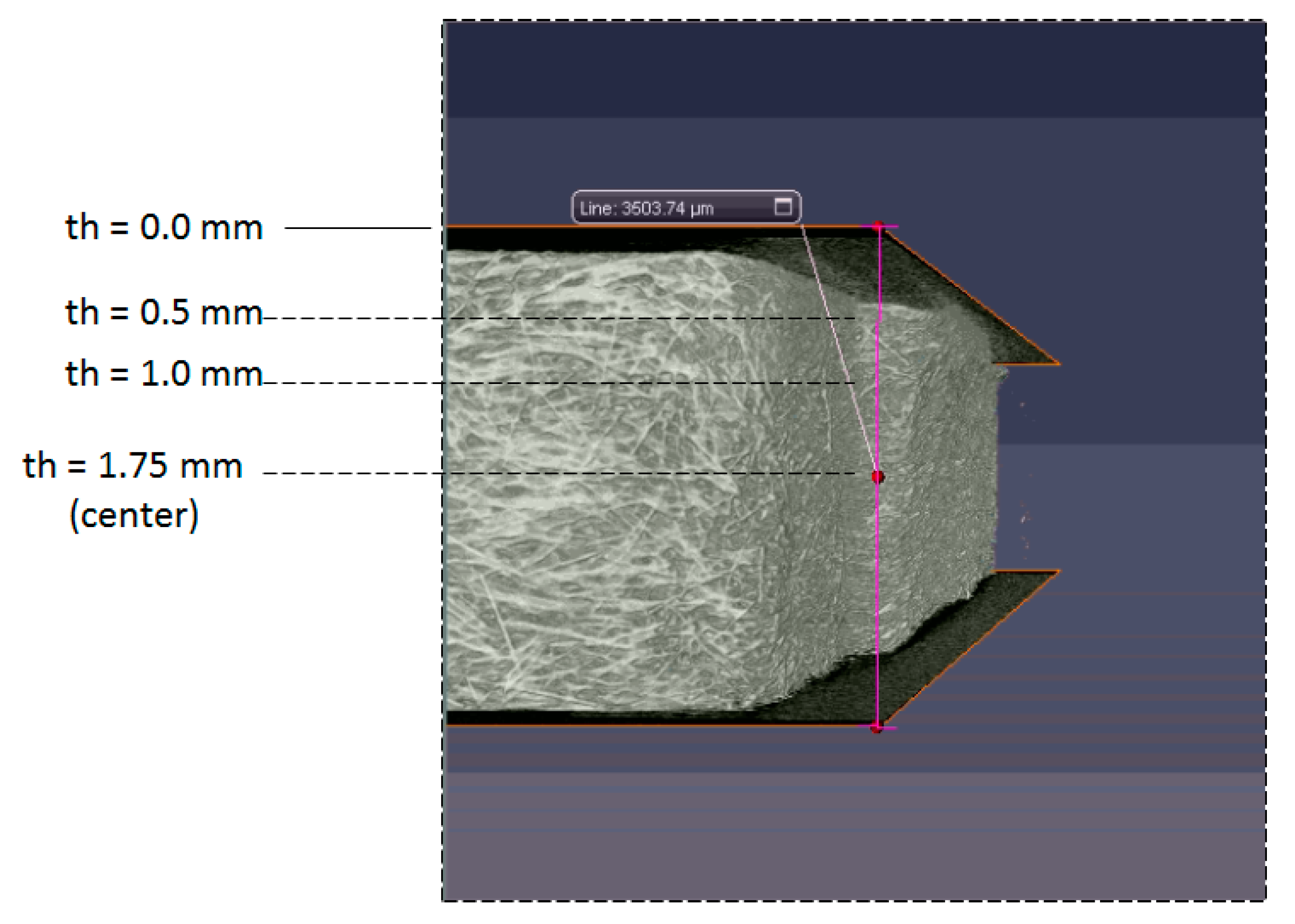
In recent years, due to the rapid development of industrial lightweight technology, composite materials based on fiber reinforced plastics (FRP) have been widely used in the industry. However, the environmental impact of the FRPs is higher each year. To overcome this impact, co-injection molding could be one of the good solutions. But how to make the suitable control on the skin/core ratio and how to manage the glass fiber orientation features are still significant challenges. In this study, ... Read more
Chao-Tsai Huang, Xuan-Wei Chen, Wei-Wen Fu
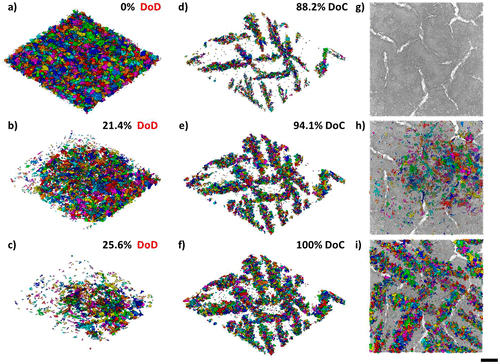
Four-Dimensional Studies of Morphology Evolution in Lithium–Sulfur Batteries
Lithium sulfur (Li–S) batteries have great potential as a successor to Li-ion batteries, but their commercialization has been complicated by a multitude of issues stemming from their complex multiphase chemistry. In situ X-ray tomography investigations enable direct observations to be made about a battery, providing unprecedented insight into the microstructural evolution of the sulfur cathode and shedding light on the reaction kinetics of the sulfur phase. Here, for the first time, the mor... Read more
Chun Tan, Thomas M. M. Heenan, Ralf F. Ziesche, Sohrab R. Daemi, Jennifer Hack, Maximilian Maier, Shashidhara Marathe, Christoph Rau, Daniel J. L. Brett, Paul R. Shearing
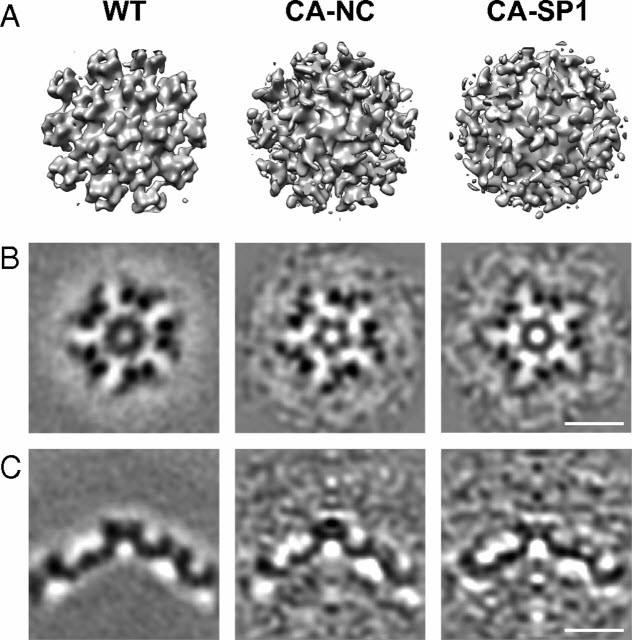
HIV-1 maturation occurs via multiple proteolytic cleavages of the Gag polyprotein, causing rearrangement of the virus particle required for infectivity. (…) How individual cleavages contribute to changes in protein structure and interactions, and how the mature, conical capsid forms, are poorly understood. Here, we employed cryoelectron tomography to determine morphology and high-resolution CA lattice structures for HIV1 derivatives in which Gag cleavage sites are mutated. These analyse... Read more
Simone Mattei, Aaron Tan, Barbel Glass, Barbara Muller, Hans-Georg Krausslich, and John A. G. Briggs
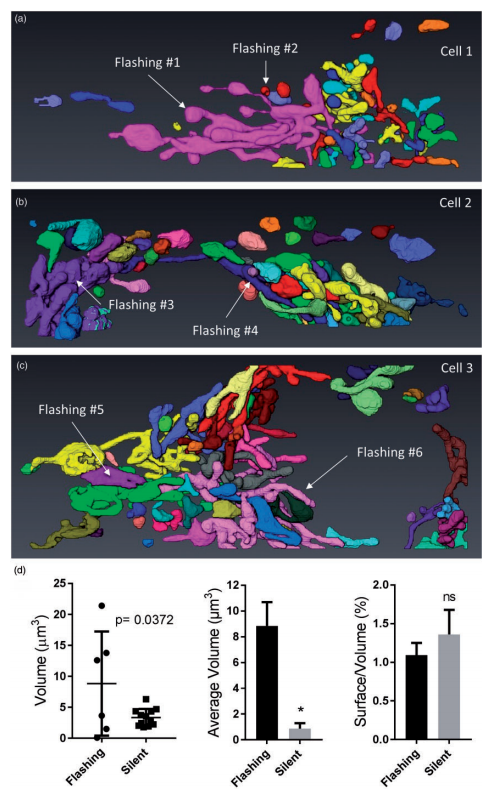
Ultrastructural Characterization of Flashing Mitochondria
Mitochondria undergo spontaneous transient elevations in matrix pH associated with drops in mitochondrial membrane potential. These mitopHlashes require a functional respiratory chain and the profusion protein optic atrophy 1, but their mechanistic basis is unclear. To gain insight on the origin of these dynamic events, we resolved the ultrastructure of flashing mitochondria by correlative light and electron microscopy. HeLa cells expressing the matrix-targeted pH probe mitoSypHer were screen... Read more
Manon Rosselin, Paula Nunes-Hasler, and Nicolas Demaurex
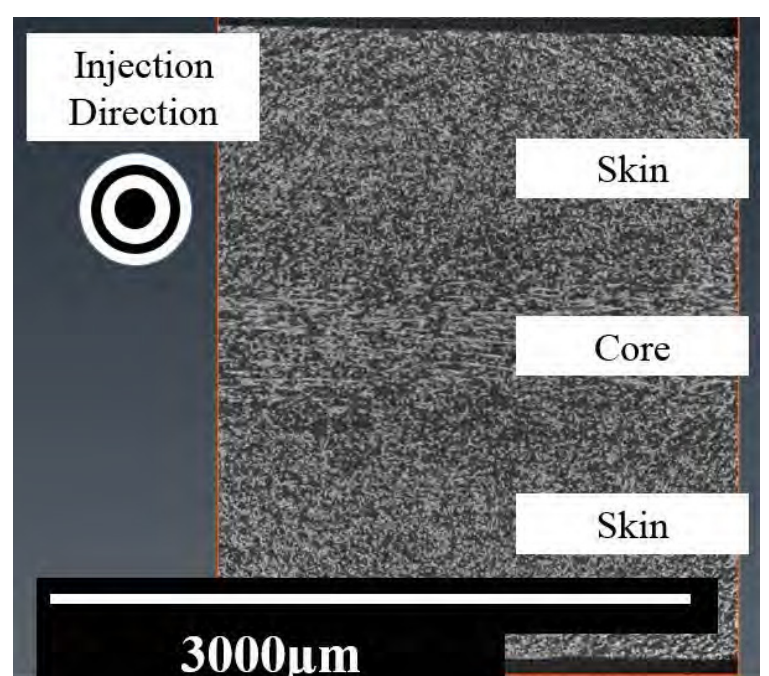
For many years, SFRPs (short fibre reinforced polyamides) have been used in the automotive industry as a means to reduce vehicle weight. However, their complex anisotropic and heterogeneous microstructure requires sophisticated material characterisation and simulation. This study aims at presenting the simulation strategy adopted by an automotive company address these challenges. The manufacturing process is first simulated and correlated with tomography analysis. Then, based on the numerical... Read more
Pablo Wilson, Peter Heyes
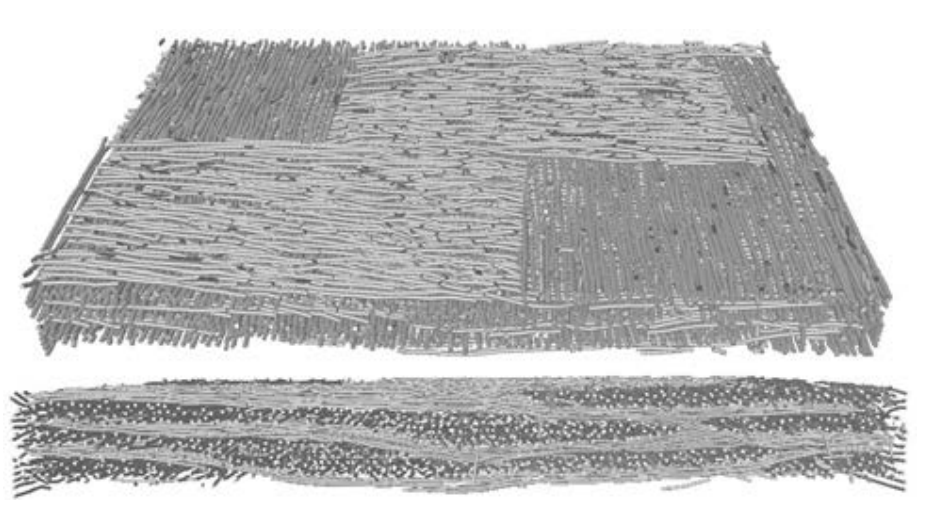
The paper proposes a new experimental methodology, based on ultrasonic measurements, that aims at evaluating the anisotropic damage in woven semi-crystalline polymer composites through new damage indicators. Due to their microstructure, woven composite materials are characterized by an anisotropic evolution of damage induced by different damage mechanisms occurring at the micro or mesoscopic scales. In this work, these damage modes in polyamide 6.6/6-woven glass fiber reinforced composites ha... Read more
Pascal Pomarède, Fodil Meraghni, Laurent Peltier, Stéphane Delalande, Nico F. Declercq
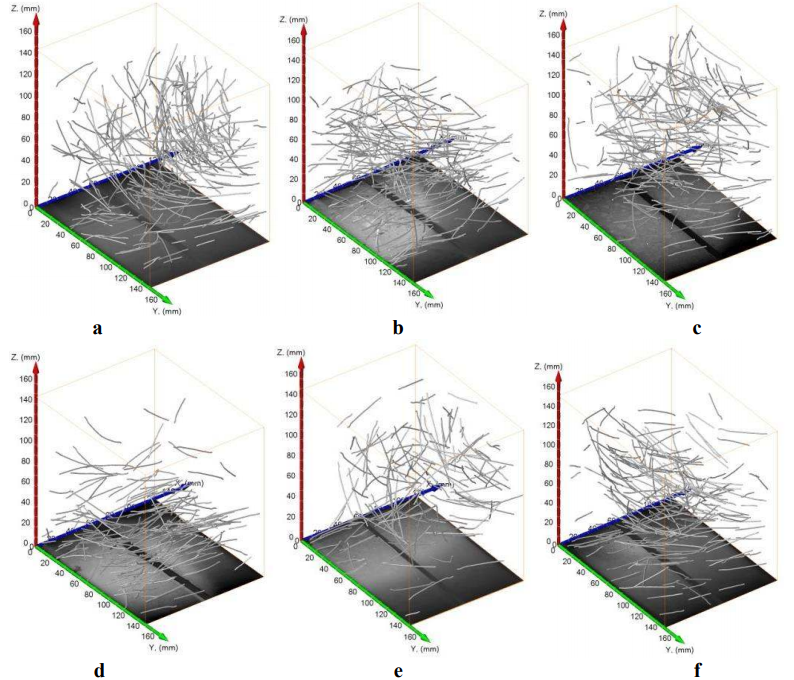
In this paper a study concerning an automatic determination of distribution of steel fibres in self-compacting concrete (SCC) is presented. The determination of fibre distribution is required to assess any relationship between those features and casting methods of concrete elements. Concrete beams with steel fibres of various types and casting methods were examined. Involved methods were computed tomography imaging followed by image analysis. After image analysis a label map consisting of all... Read more
T. Ponikiewski, J. Golaszewski, M. Rudzki, M. Bugdol
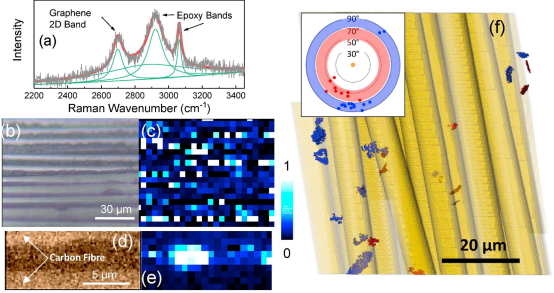
It is shown that approximately 2wt% of graphene in the matrix of a unidirectionally-reinforced carbon fiber epoxy composite leads to a significant enhancement in mechanical properties. Particularly, it is found that the axial stiffness of the composites is increased by 10GPa accompanied by an increase in axial strength of 200MPa.
Read more
Jingwen Chu, Robert J.Young, Thomas J.A.Slater, Timothy L.Burnett, Broderick Coburn, Ludovic Chichignoud, Aurèle Vuilleumier, Zheling Li
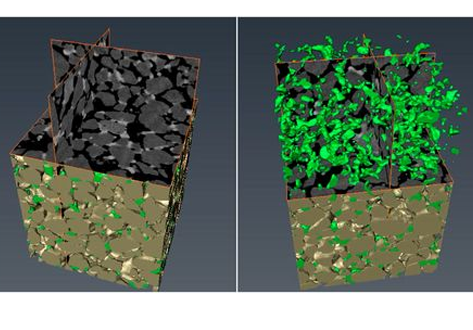
We introduce the application of microbial-induced calcite precipitation via the ureolytic soil bacterium Sporosarcina Pasteurii in freeze-dried form, as a means of enhancing overall MICP efficiency and reproducibility for geotechnical engineering applications. We show that the execution of urea hydrolysis and CaCO3 precipitation persist as a “cell-free” mechanism upon the complete breakdown of rehydrated cell clusters. Further, strength and stiffness parameters of bio-cemented ... Read more
Dimitrios Terzis, Lyesse Laloui
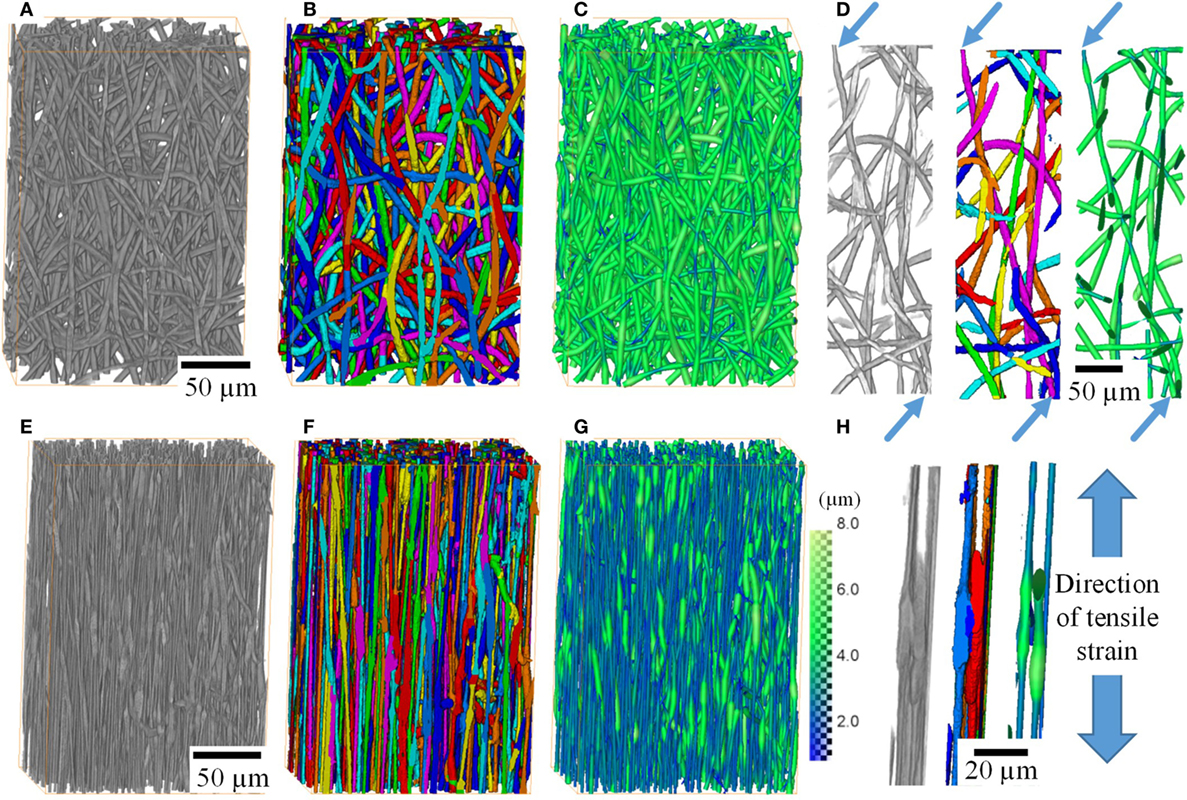
X-ray Tomographic Imaging of Tensile Deformation Modes of Electrospun Biodegradable Polyester Fibers
Electrospun constructs for the repair of load-bearing tissues are required to have adequate mechanical properties. However, the failure mechanisms of electrospun fibrous materials are not well understood. Existing literature focuses on failure modes of individual fibers and/or on bulk mechanical properties of whole fiber mats.
Electrospinning allows the production of fibrous networks for tissue engineering, drug delivery, and wound healing in health care. It enables the production of c... Read more
Jekaterina Maksimcuka; Akiko Obata ; William W. Sampson ; Remi Blanc ; Chunxia Gao ; Philip J. Withers ; Olga Tsigkou ; Toshihiro Kasuga ; Peter D. Lee ; Gowsihan Poologasundarampillai
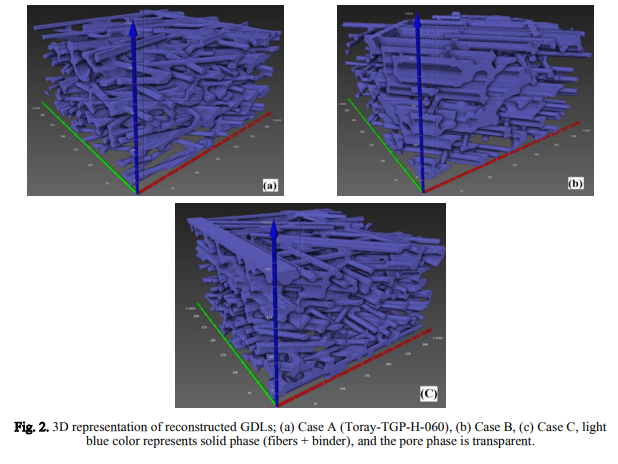
Stochastic reconstruction of carbon fiber paper gas diffusion layers of PEFCs: A comparative study
Fuel cells are electrochemical devices that convert the chemical energy of fuels into electrical energy. An ideal option for a wide variety of portable, stationary, and automotive applications is using the polymer electrolyte
fuel cells due to their modular design, high efficiency, and environmental benefits.
A 3D microstructure of the non-woven gas diffusion layers (GDLs) of polymer electrolyte fuel cells (PEFCs) is reconstructed using a stochastic method. For a commercial GDL, ... Read more
Sepehr Sima Afrookhteh, Jalil Jamali, Mohsen Shakeric, Majid Baniassadi
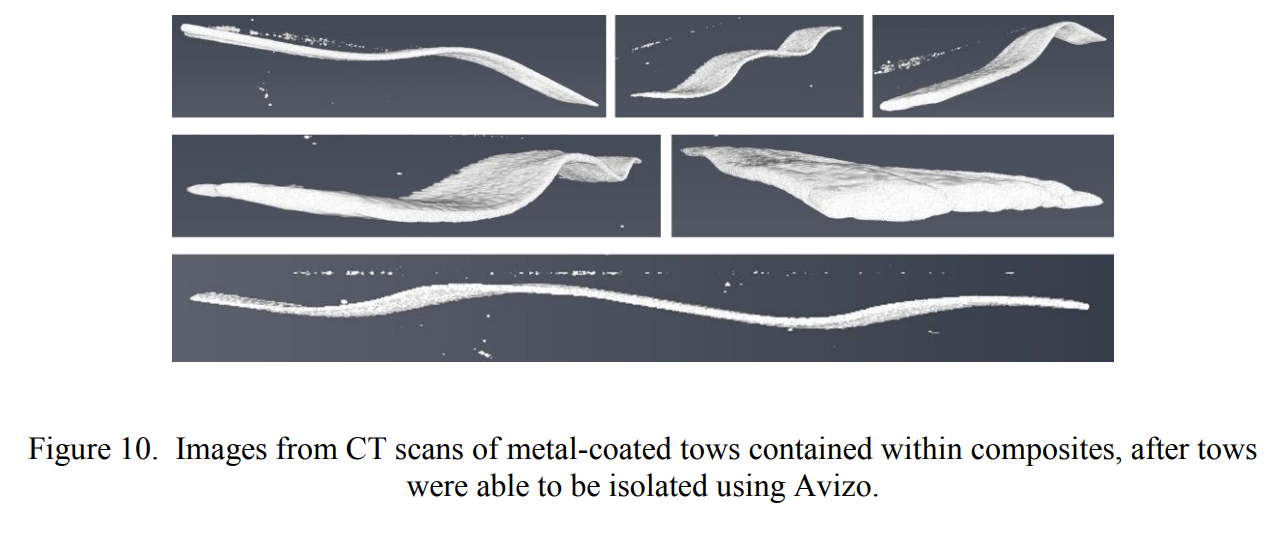
Investigation of Carbon Fiber Architecture in Braided Composites Using X-Ray CT Inspection
During the fabrication of braided carbon fiber composite materials, process variations occur which affect the fiber architecture.
Quantitative measurements of local and global fiber architecture variations are needed to determine the potential effect of process variations on mechanical properties of the cured composite. Although non-destructive inspection via X-ray CT imaging is a promising approach, difficulties in quantitative analysis of the data arise due to the similar densities o... Read more
Daniel J. Rhoads, Sandi G. Miller, Gary D. Roberts, Richard W. Rauser, Dmitry Golovaty, J. Patrick Wilber, Malena I. Español
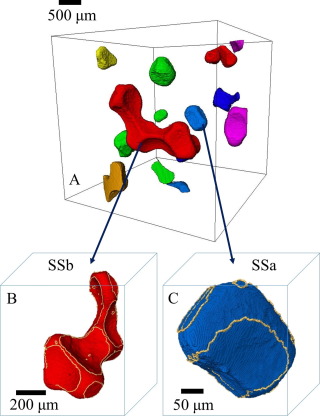
Multiphase flow in porous media is strongly influenced by the wettability of the system, which affects the arrangement of the interfaces of different phases residing in the pores.
We present a method for estimating the effective contact angle, which quantifies the wettability and controls the local capillary pressure within the complex pore space of natural rock samples, based on the physical constraint of constant curvature of the interface between two fluids. This algorithm is ... Read more
Alessio Scanziani, Kamaljit Singh, Martin J. Blunt, Alberto Guadagnini
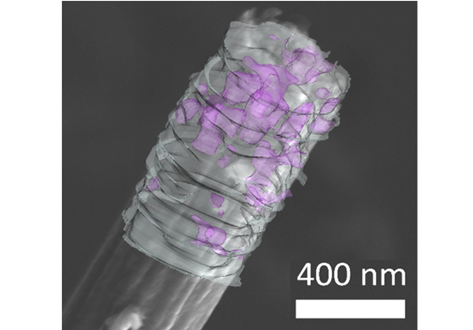
Flexible all-fiber electrospun supercapacitor
Electrospun all-fiber flexible supercapacitor with nanofiber electrodes/separator.
- Increased graphitic degree with the addition of MnACAC and thermal decomposition.
- Enhanced capacitive performance with the addition of MnO.
- Quantified nanofiber alignment and increased bias with MnO over undoped fibers.
- FIBSEM tomography of nanofibers showing MnO disitribution in carbon nanofibers.
We present an all-fiber flexible supercapacitor with compo... Read more
Xinhua Liu, Max Naylor Marlow, Samuel J. Cooper, Bowen Song, Xiaolong Chen, Nigel P. Brandon, Billy Wu
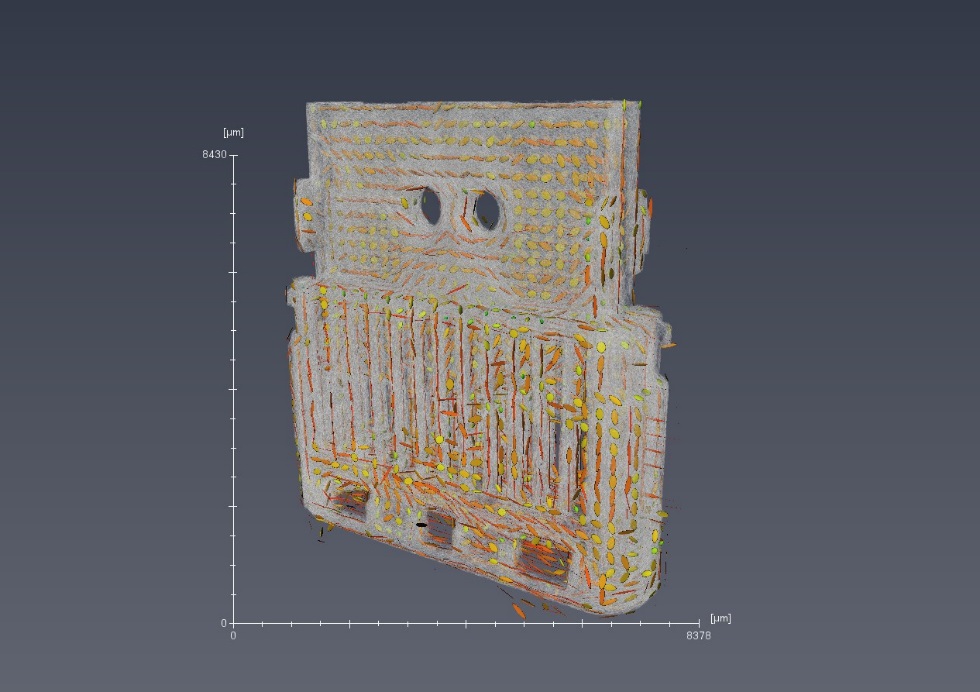
Glass fiber length and orientation analysis of reinforced polymers (GFRP)
Royal DSM is a global science-based company active in health, nutrition and
materials. Within DSM’s Materials Cluster DSM Engineering Plastics is a global player in specialty plastics. These materials are used in components for the electrical and electronics, automotive, flexible food packaging and consumer goods industries.
A typical product made of DSM Engineering Plastics’ polymer portfolio are USB-C connectors. Key performance indicators for this application are dimension... Read more
Jennifer Schillings, Arno Wilbers and Joachim Loos, DSM Materials Science Center, Geleen, The Netherlands